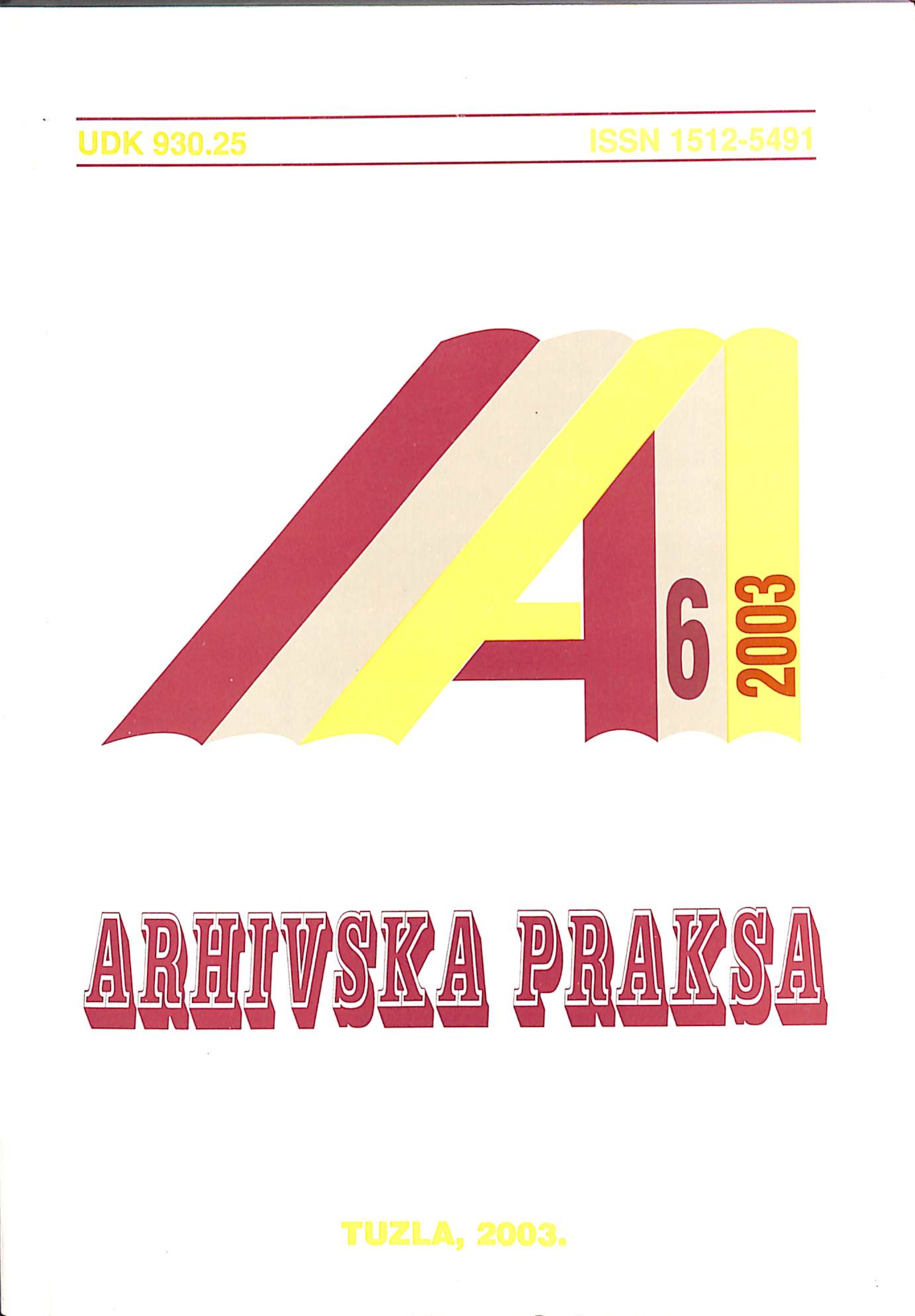PROBLEMATIKA PREUZIMANJA NESREĐENIH FONDOVA U ISTORIJSKOME ARHIVU SARAJEVO
ISSUES OF TAKING OVER NON-ARRANGED FUNDS IN SARAJEVO HISTORICAL ARCHIVE
Author(s): Milena GašićSubject(s): Archiving, Classification, Library operations and management, Education and training, Other
Published by: Arhiv Tuzlanskog kantona
Keywords: acquisition; archival material; unarranged funds; archive workers; Historical Archive of Sarajevo;
Summary/Abstract: These examples show that the archive workers need to be more informed and cautious when aquiring documents in the archive. Now the archive workers have the opportunity to meet with other and different data carriers (optical, magnetic, laser, etc.), and not just written on paper or on microfilm. All this from the archive requires workers to be more persistent, organized and pervasive in their demands to society in order to fight for more adequate, more serious and better status of archival service. Historical archive Sarajevo is still most often been in a position to take over current records of orderly funds. It is the success of "external services", as well as other employees of the Archives. This is confirmed by the fact that of the 617 funds, as there are Archive, 57 funds is partially arranged, and only 41 fund is disorderly. In addition it should be remembered that there is a change (enlargement) of the term "tidy fund", mainly due to the new way of administrative business and new ways of processing documents, and the creation of new forms of documents. It requires from archival workers to work on their training for work with this type of documentation, as well as to create conditions for the processing of such documents and their storage. Moving forward it is possible to make efforts to change the legislation so that it was really a function of protection of archives. this mozerno achieved only if we fight for adequate treatment and status of archival service in the company.
Journal: Arhivska praksa
- Issue Year: 2003
- Issue No: 6
- Page Range: 83-88
- Page Count: 6
- Language: Bosnian, Croatian, Serbian

